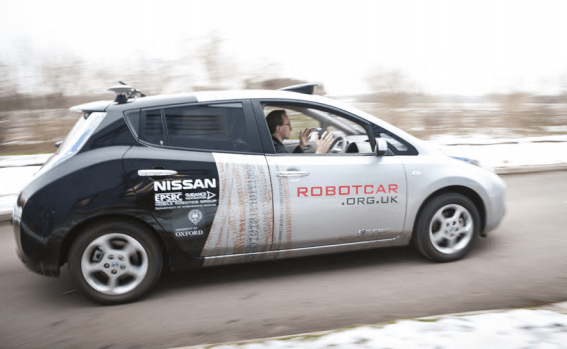Giving his final budget before the U.K. general election this May, and inevitable sales pitch to the U.K. electorate, Chancellor George Osborne has announced several tranches of cash for nascent technologies — including £100 million for driverless car technology; £40 million for research into the Internet of Things; and £10 million to go towards investigating the “future potential” of digital currency technology.
The budget also set out plans for a so-called ‘Google tax’ on diverted profits. So, should a Conservative (or Tory-led) government be elected to office later this year we can expect to see it taking extra money off Silicon Valley-based tech giants and putting some of that cash to work to try developing homegrown alternatives to SV tech.
There’s precious little detail about how these tech-focused cash injections will be spent at this point, beyond specifying they are intended for research initiatives. This is really about listing (and quantifying) a few tech priorities for a future Tory government.
After (fixed and mobile) broadband, which Osborne pledged £600 million for in this budget, driverless car tech comes out top of the tech priorities list. (Although he also announced £140 million for research into “infrastructures and cities of the future” — aka smart cities — which is pretty vague but will likely shake out into technology investments of some sort.)
The focus on driverless car tech is not surprising, given it’s been an area of interest for the current coalition government for some time. It named it as an infrastructure investment priority at the end of 2013, and following that up with an official robotics strategy document last summer which talked up testing autonomous vehicles in the wild.
U.K. driverless technology testing centres are also being set up and relevant regulations reviewed. Most recently a government report gave the green light for hands-free driverless car tech to be tested on U.K. public roads. The government has also previously announced £19 million in funding to help establish driverless car testing centres around the U.K.
When it comes to the Internet of Things, Osborne didn’t put much meat on the bones of the budget funding announcement. The IoT was generally dubbed “the next stage of the information revolution”, and the Chancellor unboxed the hackneyed connected fridge cliche during the speech — albeit managing to make it make even less sense than it normally does.
“So should – to use a ridiculous example – someone have two kitchens, they will be able to control both fridges from the same mobile phone,” he said.
Urban transport and medical devices were also mentioned in relation to IoT.
Digital currencies, which are pegged for a modest investment, didn’t get any direct mention in the speech. But speaking at Disrupt London last October, Ed Vaizey, the U.K.’s minister for the digital economy, noted the government is keeping an open mind here and “looking at opportunities”.
“We want to make these e-payments faster, quicker, we want to make it as safe as possible. And we want to look at the kind of technologies that the digital currencies use to allow end systems to operate in a de-centralized way, with no intermediaries. We want to look at how the new technologies can benefit consumers and the wider economy. So that’s something the Treasury is very interested in,” Vaizey added at the time.
